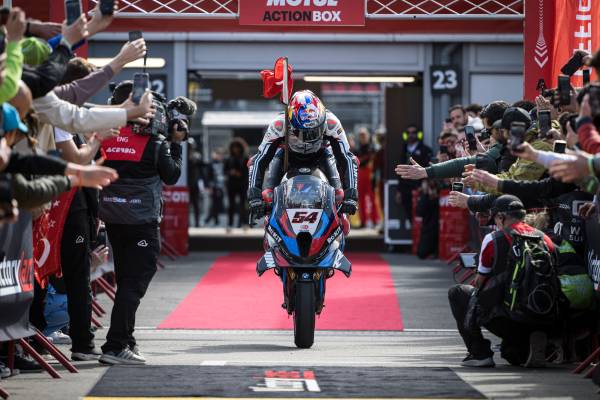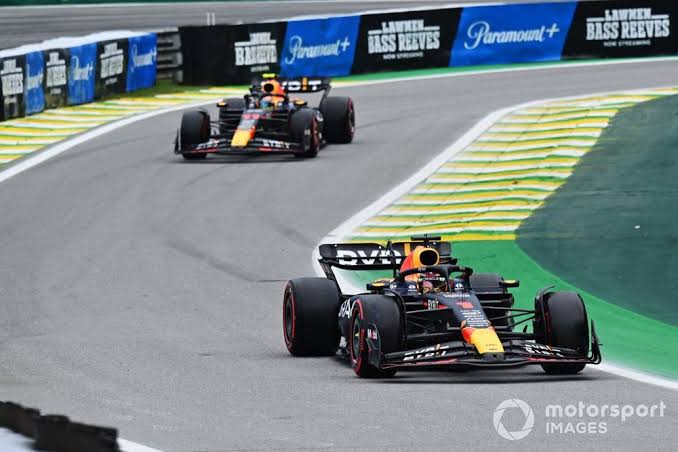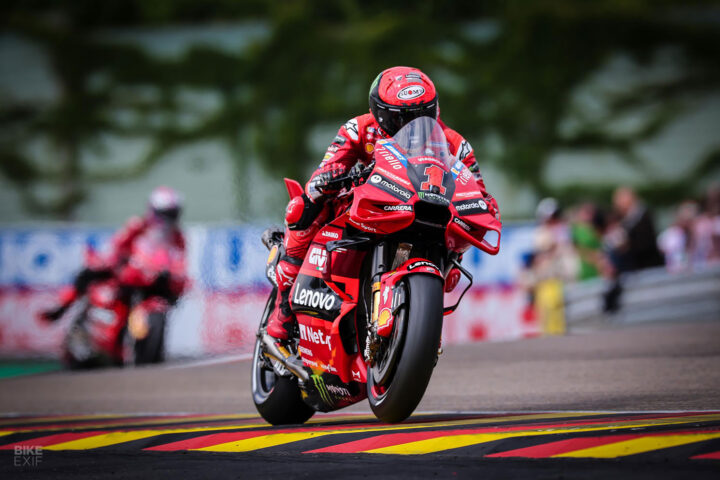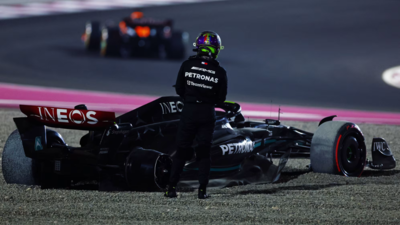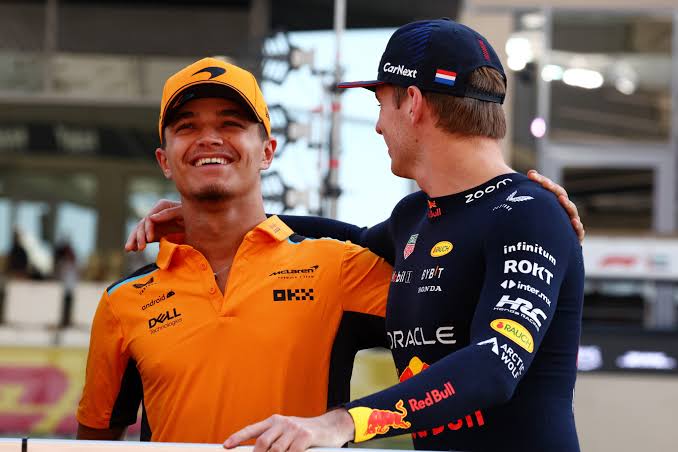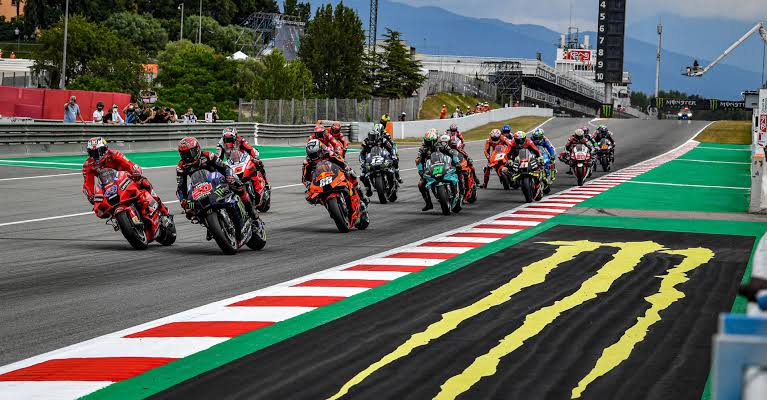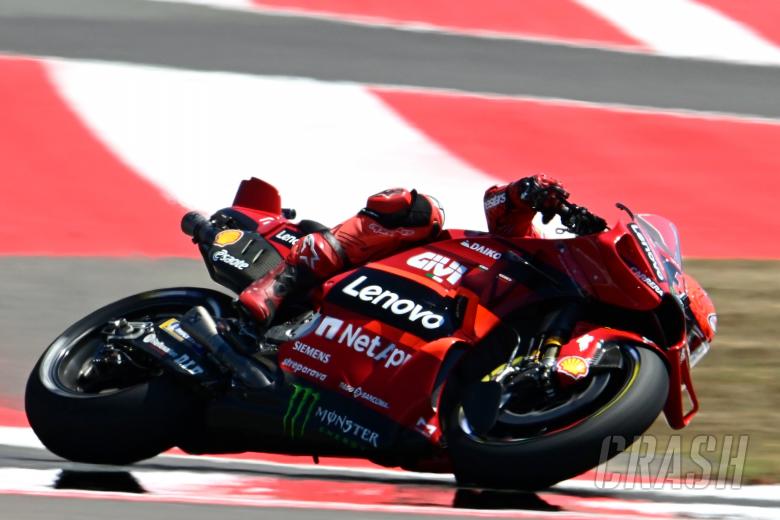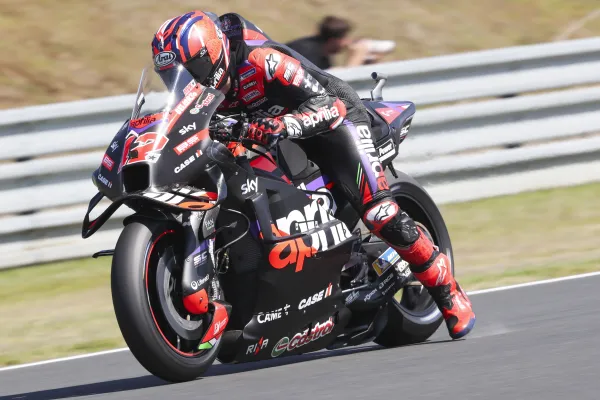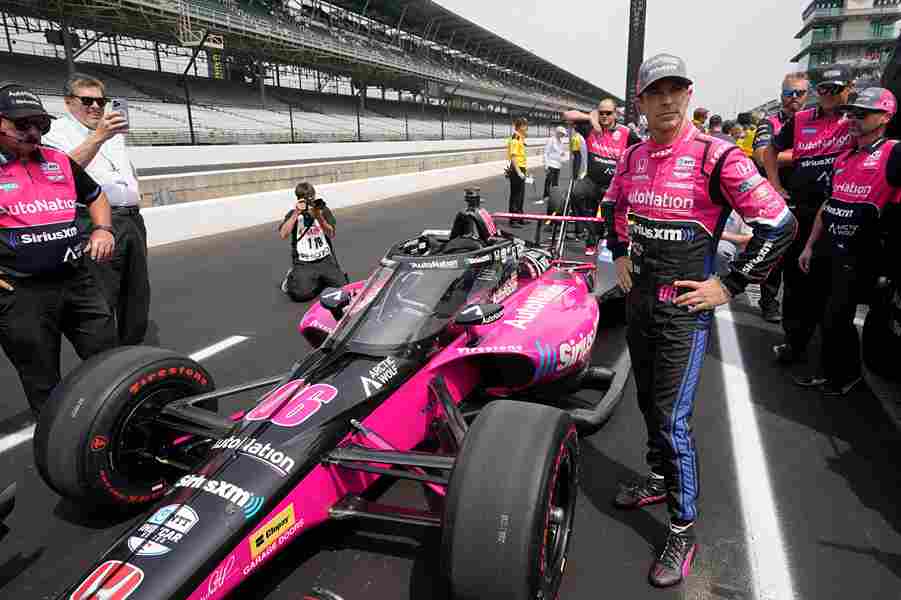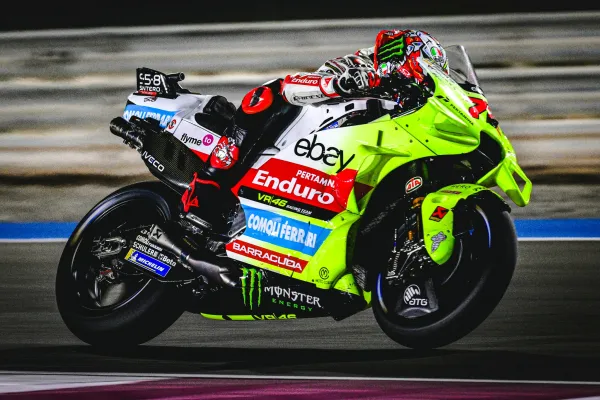The Remarkable Journey: Marc Marquez As MotoGP’s Ultimate Survivor
Marc Marquez’s story in MotoGP stands as one of the most compelling narratives of sporting resilience in modern motorsport history. From his meteoric rise as the youngest premier class champion to overcoming career-threatening injuries and successfully transitioning between manufacturers, Marquez has demonstrated an extraordinary ability to adapt, evolve, and continue competing at the highest level. As of early 2025, with the Spanish phenomenon once again challenging for championships, his journey exemplifies what it means to be the ultimate survivor in the high-stakes world of Grand Prix motorcycle racing.
The Early Rise of a Phenomenon
Born on February 17, 1993, in Cervera, Spain, Marc Marquez Alentà showed exceptional talent from his earliest days in motorcycle racing. Affectionately known as the ‘Ant of Cervera’ due to his modest height of 168cm, and ‘el tro de Cervera’ (the Thunder of Cervera) in his hometown, Marquez possessed a natural ability that set him apart from his peers3. His journey to MotoGP greatness began in the smaller categories, where he quickly established himself as a rider with extraordinary potential.
The first glimpse of Marquez’s championship pedigree came in 2010 when he claimed the 125cc World Championship. This victory marked just the beginning of what would become one of the most decorated careers in motorcycle racing history. Continuing his ascent through the ranks, Marquez secured the Moto2 World Championship in 2012, demonstrating that his talents extended beyond a single category. These successes in the junior divisions were impressive in their own right, but they merely served as a prelude to an unprecedented career in the premier class.
What distinguished Marquez even during these formative years was his fearless riding style and uncanny ability to extract performance from his machinery that seemed beyond its limits. His aggressive approach to racing, characterized by late braking, spectacular saves, and an almost supernatural ability to control a sliding motorcycle, hinted at the greatness that was to come. This distinctive style would become his trademark throughout his career, earning him admiration from fans and respect from competitors.
Historic MotoGP Debut and Era of Dominance
When Marquez entered MotoGP in 2013 with the Repsol Honda team, expectations were high, but what followed exceeded even the most optimistic predictions. In his rookie season, Marquez achieved what most riders can only dream of throughout their entire careers. He became the first rider since Kenny Roberts in 1978 to win the premier class championship in his debut season, and at just 20 years and 266 days old, he became the youngest rider ever to claim the MotoGP world title.
This unprecedented success was no fluke. Marquez followed his rookie championship with an even more dominant 2014 campaign, during which he won the first ten races of the season consecutively. This performance demonstrated that Marquez was not merely a talented newcomer but a rider who was redefining the limits of what was possible in MotoGP. His 2014 season remains one of the most dominant in the history of the sport, as he secured the championship with three rounds to spare.
The period between 2013 and 2019 saw Marquez amass six premier class world championships (2013, 2014, 2016, 2017, 2018, and 2019). Perhaps the most remarkable of these was his 2019 campaign, which represented the zenith of his powers. During this season, he accumulated an astonishing 420 points, with 12 wins, 10 pole positions, and 18 podium finishes in 19 races. His dominance during this period was such that many began to wonder if any rider could challenge his supremacy in the foreseeable future.
Marquez’s success during these years was built on a unique combination of factors. His extraordinary talent was complemented by a perfect synergy with the Honda RC213V, a notoriously difficult motorcycle that seemed to be tamed only under his command. His ability to wrestle the maximum performance from the Honda while other riders struggled with the same machinery highlighted his exceptional adaptability and technical understanding. Additionally, his mental strength and strategic intelligence allowed him to excel not just in ideal conditions but also in adversity – a trait that would prove crucial in the years to come.
By the end of 2019, Marquez had established himself as not just the dominant rider of his generation, but as one of the greatest of all time. With six premier class titles already secured before the age of 27, comparisons to legends like Valentino Rossi and Giacomo Agostini seemed not just appropriate but inevitable. The question was not if Marquez would continue to win championships, but how many he would accumulate before his career concluded. However, fate had different plans for the Spanish champion.
The Fall: Injury and the Dark Period
The trajectory of Marquez’s career changed dramatically in 2020. In the opening race of the season at Jerez, Spain, Marquez suffered a horrific crash that resulted in a broken right humerus. What initially seemed like a setback that might cost him a few races turned into a nightmare that would threaten his entire career. This injury, which would require multiple surgeries and a prolonged rehabilitation period, marked the beginning of the most challenging phase of Marquez’s professional life.
An attempt to return to racing just days after the initial surgery proved premature and potentially damaging. Complications from the injury required additional operations and an extended recovery period that saw him miss the entire 2020 season. He competed in just one Grand Prix that year, earning zero points – a stark contrast to the 420 points he had amassed the previous season. The indomitable champion who had seemed almost invincible was suddenly facing questions about whether he would ever race again.
The road back from this injury was long and arduous. When Marquez returned to competition in 2021, it was evident that he was not the same rider who had dominated the sport for years. The physical limitations imposed by his injury affected his ability to ride the Honda in his customary style. Nevertheless, he managed to secure three wins and four podiums in 14 races, finishing seventh in the championship – a remarkable achievement considering the circumstances, but a far cry from his previous standards.
The 2022 and 2023 seasons continued to be challenging for Marquez. He struggled not only with his physical condition but also with a Honda motorcycle that had fallen behind its competitors in terms of performance. In 2022, he participated in just 12 races, securing one pole position and one podium finish2. The 2023 season saw similar results, with one pole position and one podium in 15 races. These statistics reflected both Marquez’s ongoing physical limitations and the growing competitive disadvantage of the Honda RC213V.
This period tested Marquez’s resilience like never before. The rider who had once seemed invincible was now fighting merely to be competitive. Many questioned whether he would ever return to his former glory, and some even suggested that his time as a premier contender in MotoGP might be over. Jorge Lorenzo, a former teammate and rival, noted that Marquez’s 2020 injury continued to impact him even years later. For a rider whose identity had been so closely tied to success and dominance, these years represented not just a physical challenge but a profound psychological one as well.
The Revival: A New Beginning with Ducati
In what would prove to be one of the most significant decisions of his career, Marquez chose to leave Honda after 11 years to join the Gresini Racing team for the 2024 season, riding a Ducati GP23. This move represented a massive risk – leaving the security of the factory Honda team that had been his home for his entire MotoGP career to join a satellite team with year-old machinery. However, it also demonstrated Marquez’s understanding that to regain his competitive edge, a change of environment was necessary.
The signs that this change might revitalize his career were evident from his very first test day with Ducati in November 2023. Despite being contractually bound from discussing his first impressions of the Ducati, the subtle flashes of smiles and significantly improved lap times told their own story1. From his first few laps on the Ducati GP23, Marquez was competitive, posting times that were remarkably close to his best on the Honda despite the minimal time to adapt to the new machine.
His first run on the Ducati yielded a lap time of 1m30.683s, just over two tenths shy of his fastest lap from the Valencia Grand Prix on the Honda the previous weekend. This immediate pace on an unfamiliar motorcycle spoke volumes about both Marquez’s adaptability and the competitiveness of the Ducati platform. As Gresini sporting director Michele Masini noted after the test, “The day was amazing… The important thing is the feeling.”
The 2024 season proved that Marquez’s decision was indeed the right one. Riding for the Gresini Racing team, he secured 3 wins, 2 pole positions, and 10 podium finishes over 20 races, finishing third in the championship with 392 points2. This performance demonstrated that Marquez was still capable of competing at the highest level given competitive machinery. More importantly, it showed that he had successfully adapted his riding style to accommodate both his physical limitations and the different characteristics of the Ducati.
His impressive 2024 campaign earned him a promotion to the factory Ducati Lenovo Team for the 2025 season, where he has continued to excel. As of April 2025, after the first three races of the season, Marquez sits second in the championship standings with 86 points, having secured wins in both Thailand and Argentina, along with three pole positions and two podium finishes. These results represent a remarkable resurgence for a rider who, just a few years earlier, many had written off as a spent force in MotoGP.
The revival of Marc Marquez with Ducati exemplifies the importance of having the right tool for the job in modern MotoGP. While his talent was never in question, the combination of his injury limitations and Honda’s developmental struggles created a situation where his skills could not be fully utilized. The switch to Ducati provided him with a motorcycle that better suited his adapted riding style and allowed him to once again demonstrate the qualities that had made him a multiple world champion.
The Technical Mastery: Riding Style and Adaptation
What makes Marquez’s survival and revival in MotoGP particularly remarkable is his ability to adapt his riding style to overcome both physical limitations and different motorcycle characteristics. Marquez is often considered one of the greatest innovators of modern MotoGP racing due to his exaggerated cornering technique, leaning so far over the bike that he seems to be “in constant danger of sliding out”. This distinctive approach to motorcycle control has redefined the boundaries of what is possible on a MotoGP machine.
Prior to his injury, Marquez rode with a style that emphasized front-end feel and aggressive corner entry, often using his extraordinary sense of balance to save crashes that would have ended the races of most other riders. His ability to recover from front-end slides and near-crashes became his trademark, earning him the nickname “the save king” among fans and commentators. This riding style allowed him to push the limits of adhesion in a way that few other riders could emulate, giving him a significant advantage, particularly in qualifying sessions and in the early phases of races.
The physical demands of this riding style cannot be overstated. Marquez’s approach required exceptional core strength, precise control, and split-second reactions. The constant shifting of weight and the physical manipulation of the motorcycle through corners placed enormous strain on his body, particularly his shoulders and arms. When his right arm was compromised by the 2020 injury, many wondered if he would ever be able to ride in his distinctive style again.
Following his injury, Marquez had to adapt his technique significantly. The damage to his right arm affected his strength and control, particularly in right-hand corners, which presented a substantial challenge on most circuit layouts. Rather than abandoning the aggressive approach that had brought him so much success, Marquez evolved his technique, finding new ways to extract performance from the motorcycle while working within his physical limitations. This adaptation included modifying his body position, changing his braking patterns, and developing new strategies for corner entry.
The switch to Ducati presented another challenge – adapting to a motorcycle with fundamentally different characteristics from the Honda he had ridden for over a decade. The Ducati is known for its strong engine and stability under braking but requires a different approach in corner entry and mid-corner compared to the Honda. Marquez’s ability to quickly adapt his riding style to these new requirements speaks volumes about his technical understanding and versatility as a rider. His success on the Ducati has demonstrated that his talent transcends the specificities of any particular motorcycle.
This technical adaptability is perhaps the most underappreciated aspect of Marquez’s greatness. While many riders excel with a particular style on a specific motorcycle, Marquez has shown the ability to modify his approach to overcome both physical limitations and the challenges of adapting to a new motorcycle. This technical intelligence, combined with his natural talent and determination, has been key to his survival and continued success in the sport.
The Mental Fortitude: Psychological Resilience
Beyond the physical and technical challenges, Marquez’s journey through adversity has showcased his extraordinary mental strength. The psychological impact of going from dominating the sport to struggling to be competitive cannot be underestimated. Many champions have seen their careers effectively end after serious injuries or periods of difficulty, unable to recapture their former belief or motivation. Marquez’s ability to maintain his focus and determination through years of setbacks speaks to a remarkable psychological resilience.
The decision to leave Honda – the team that had been his home throughout his MotoGP career – required tremendous courage. It represented an acknowledgment that to continue competing at the highest level, change was necessary. This willingness to step out of his comfort zone and take risks has been rewarded with a revival that few thought possible during his darkest days.
Moreover, Marquez has had to manage the psychological burden of competing with physical limitations. For a rider whose style was so physically demanding and who had built his identity around pushing the limits, accepting and adapting to new constraints required a significant mental adjustment. His ability to remain patient through the recovery process, to accept temporary setbacks, and to focus on incremental improvements rather than immediate results has been crucial to his long-term revival.
The mental aspect of Marquez’s resilience extends to his approach to racing as well. Despite his physical limitations and the challenges of adapting to a new motorcycle, he has maintained the aggressive, committed approach that defined his early career. While he may have modified the technical aspects of his riding, his fundamental racing mentality – the willingness to take risks, to attack when opportunities present themselves, and to never settle for second best – remains unchanged.
The Legacy and Future Prospects
As of April 2025, Marquez stands as one of the most successful riders in MotoGP history. With eight world championships across all classes (six in MotoGP), 64 premier class wins, and countless other accolades, his statistical legacy is secure. He is one of only four riders to have won world championships in three different categories, joining an elite group alongside Mike Hailwood, Phil Read, and Valentino Rossi. These achievements alone would guarantee Marquez a place among the all-time greats of motorcycle racing.
Yet, Marquez’s legacy extends beyond mere statistics. His journey from dominance to injury to revival represents one of the most compelling narratives in modern motorsport. He has shown that true greatness is not just about winning when conditions are favorable but also about the ability to overcome adversity and reinvent oneself when necessary. This aspect of his career has resonated with fans and competitors alike, earning him respect even from those who may have been critics during his years of dominance.
Looking to the future, the question remains: can Marquez add to his tally of world championships? At 32 years old in 2025, he is still relatively young by modern MotoGP standards, and his recent results suggest that he remains more than capable of challenging for titles. Jorge Lorenzo, himself a multiple MotoGP world champion, has stated that while the 2020 injury is still impacting Marquez in some way, he believes Marquez can win another MotoGP title.
The 2025 season has started promisingly for Marquez with the factory Ducati team. His two wins in the first three races demonstrate that he has lost none of his speed or race craft. With a competitive motorcycle underneath him and the experience gained from his years of struggle, Marquez is once again positioned as one of the main contenders for the championship. Whether he succeeds in adding a seventh MotoGP title to his collection remains to be seen, but his resurgence has already added a remarkable chapter to his legacy.
The Ultimate Survivor: Lessons from Marquez’s Journey
What ultimately makes Marc Marquez the ultimate survivor in MotoGP is not just that he has endured through adversity, but that he has evolved and grown through each challenge. From the young phenom who rewrote the record books to the injured champion fighting for relevance, to the revitalized contender proving his critics wrong, Marquez’s career has embodied resilience at every turn.
His journey offers valuable lessons that extend beyond motorcycle racing. Marquez has demonstrated the importance of adaptability in the face of changing circumstances. Rather than clinging to the approaches that had brought him success in the past, he has been willing to evolve his techniques and strategies to accommodate new realities. This willingness to change and grow has been central to his ability to remain competitive despite the challenges he has faced.
Marquez’s career also highlights the critical interplay between physical ability and mental strength. While his physical recovery from injury has been remarkable, it is his psychological resilience – his unwavering belief in his abilities and his determination to return to the top – that has enabled him to persevere through years of setbacks. This mental fortitude has allowed him to approach each challenge not as an insurmountable obstacle but as a problem to be solved.
Furthermore, Marquez’s story illustrates the importance of making difficult decisions in pursuit of long-term goals. His choice to leave Honda after 11 years was not made lightly, but it reflected a clear-eyed assessment of what was necessary for him to continue competing at the highest level. This willingness to take calculated risks, to step outside his comfort zone in pursuit of new opportunities, has been rewarded with a career renaissance that many thought impossible.
As the 2025 MotoGP season unfolds, Marquez continues to write new chapters in his remarkable story. Whether or not he adds more world championships to his collection, he has already secured his place as not just one of the greatest riders in history, but as the ultimate survivor in a sport where careers can be as fragile as they are glorious. His journey from prodigy to champion to casualty and back to contender stands as a testament to the power of resilience, adaptability, and unwavering determination in the face of adversity.
In a sport defined by speed, risk, and constant evolution, Marc Marquez has demonstrated that the greatest quality a champion can possess is not just the ability to win races, but the capacity to overcome the inevitable challenges that arise in a long and distinguished career. It is this quality, more than any championship trophy or race victory, that cements his legacy as MotoGP’s ultimate survivor.

